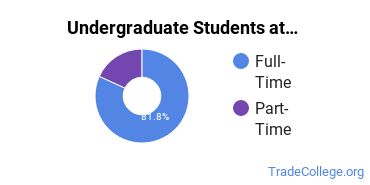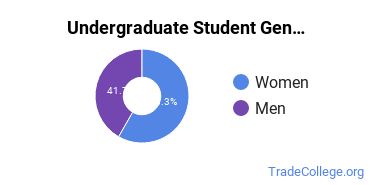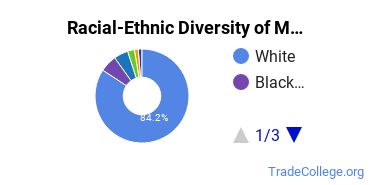Find Trade Colleges
Marshall University Trade Programs
Marshall University is a public institution situated in Huntington, West Virginia. The city atmosphere of Huntington makes it a great place for students who enjoy having lots of educational and entertainment options.
Featured schools near , edit
Where Is Marshall University?

Contact details for Marshall University are given below.
| Contact Details | |
|---|---|
| Address: | 1 John Marshall Dr, Huntington, WV 25755 |
| Phone: | 304-696-3170 |
| Website: | www.marshall.edu |
Can I Afford Marshall University?
| In State | Out of State | |
|---|---|---|
| Tuition | $7,372 | $18,724 |
| Fees | $1,570 | $1,570 |
| Books and Supplies | $1,100 | $1,100 |
| On Campus Room and Board | $12,852 | $12,852 |
| On Campus Other Expenses | $2,400 | $2,400 |
Student Loan Debt
While almost two-thirds of students nationwide take out loans to pay for college, the percentage may be quite different for the school you plan on attending. At Marshall University, approximately 47% of students took out student loans averaging $5,931 a year. That adds up to $23,724 over four years for those students.
Marshall University Undergraduate Student Diversity

There are also 3,186 graduate students at the school.
Gender Diversity
Of the 7,002 full-time undergraduates at Marshall University, 42% are male and 58% are female.

Racial-Ethnic Diversity
The racial-ethnic breakdown of Marshall University students is as follows.

| Race/Ethnicity | Number of Grads |
|---|---|
| Asian | 67 |
| Black or African American | 404 |
| Hispanic or Latino | 182 |
| White | 5,926 |
| International Students | 96 |
| Other Races/Ethnicities | 327 |
Geographic Diversity
West Virginia students aren't the only ones who study at Marshall University. At this time, 33 states are represented by the student population at the school.
Over 70 countries are represented at Marshall University. The most popular countries sending students to the school are China, India, and Saudi Arabia.
Marshall University Trade School Concentrations
The table below shows the number of awards for each concentration.
| Major | Associate’s | Bachelor’s | TOTAL |
|---|---|---|---|
| Radiologic Technology | 0 | 14 | 14 |
| Occupational Safety & Health Technology | 0 | 12 | 12 |
| Respiratory Care Therapy | 0 | 12 | 12 |
| Laboratory Sciences & Medical Technology | 0 | 10 | 10 |
| Athletic Training | 0 | 4 | 4 |
| Laboratory Technician | 4 | 0 | 4 |
| Cytotechnology/Cytotechnologist | 0 | 0 | 0 |
| TOTAL | 4 | 52 | 56 |
References
*The racial-ethnic minorities count is calculated by taking the total number of students and subtracting white students, international students, and students whose race/ethnicity was unknown. This number is then divided by the total number of students at the school to obtain the racial-ethnic minorities percentage.
- College Factual
- National Center for Education Statistics
- Image Credit: By Beyond My Ken under License
More about our data sources and methodologies.
